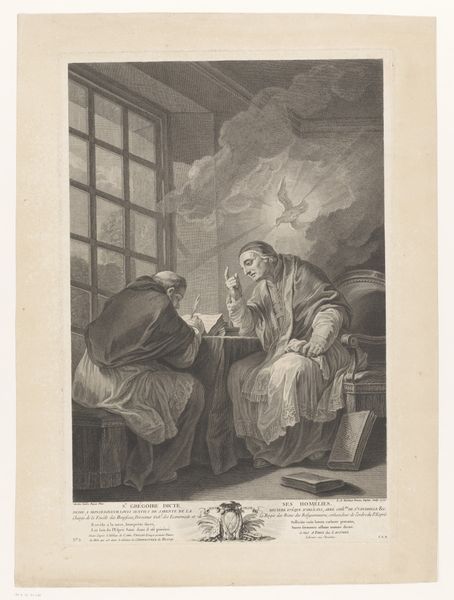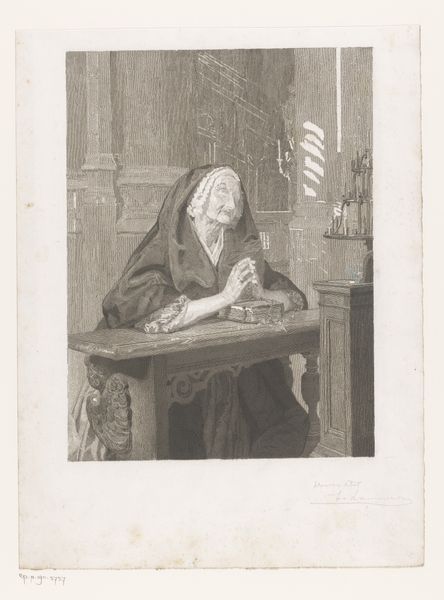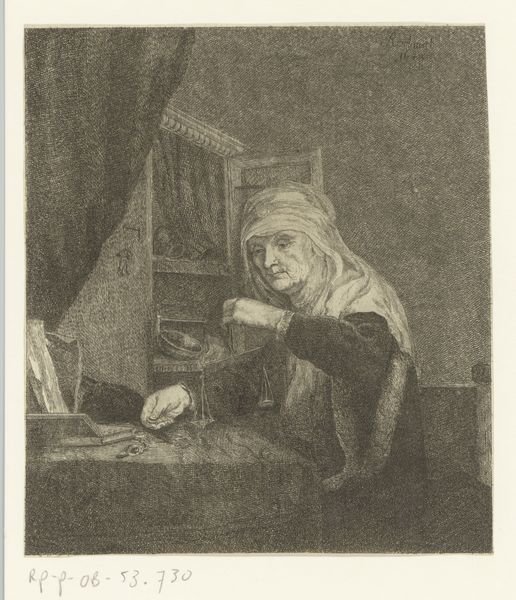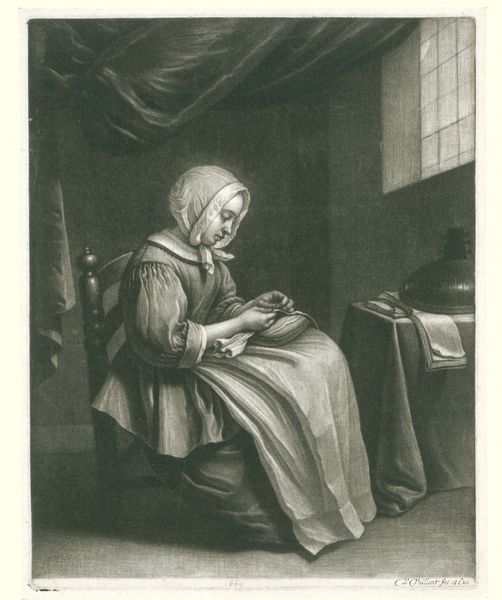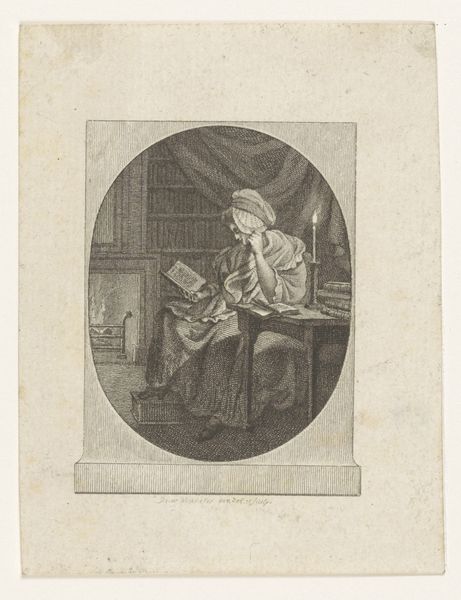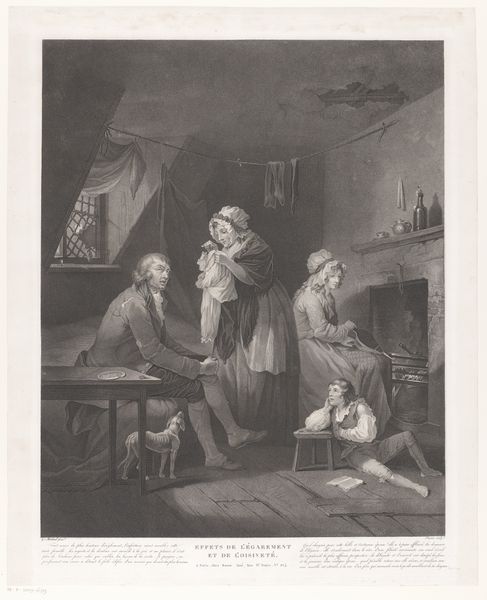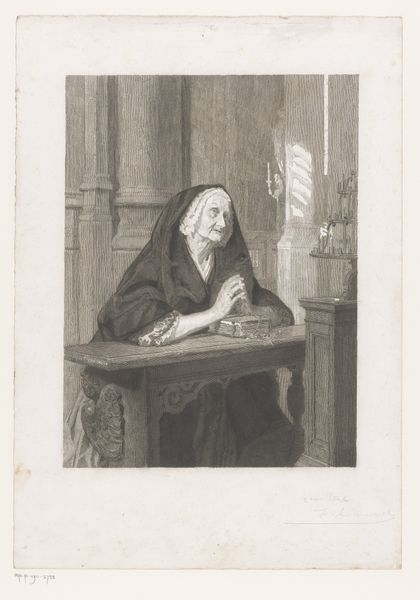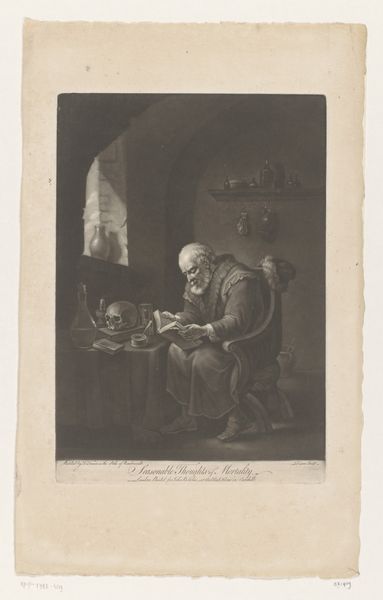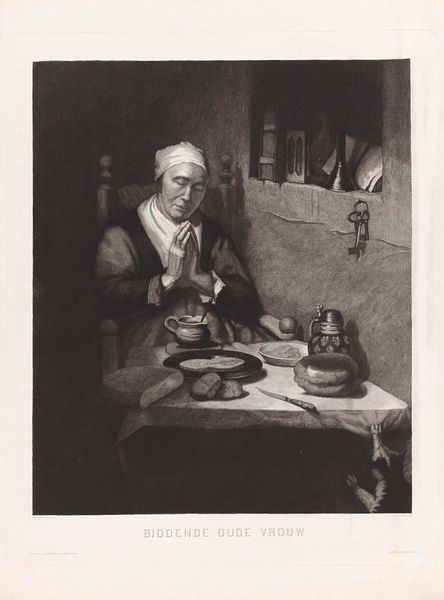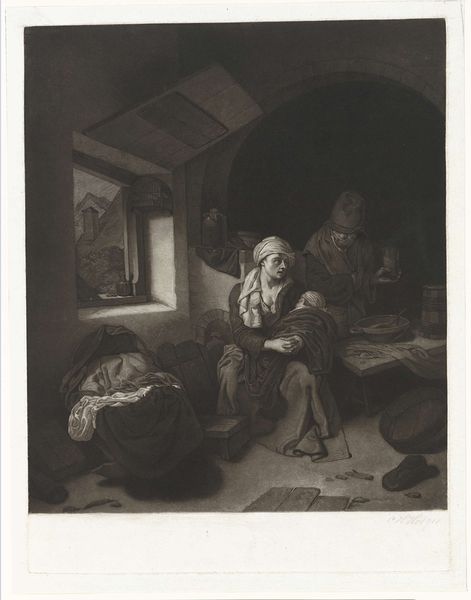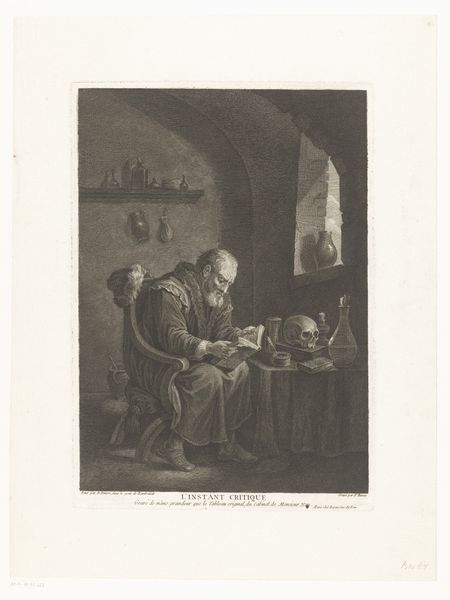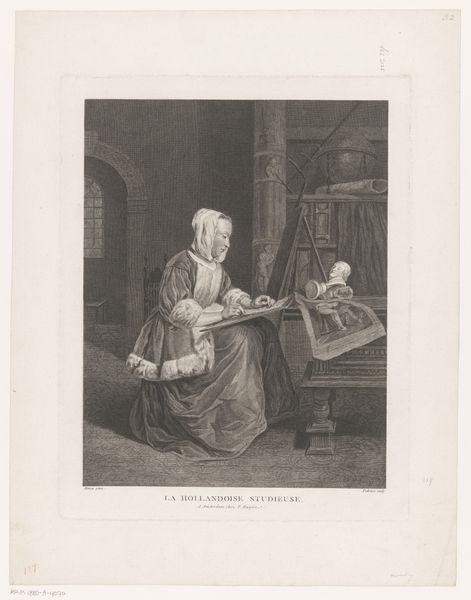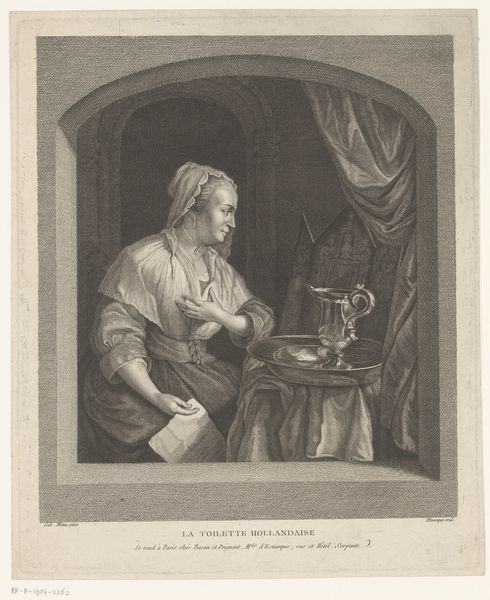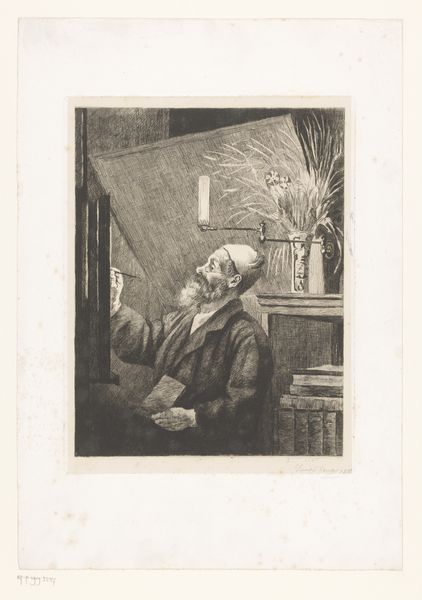
drawing, paper, ink
#
portrait
#
drawing
#
paper
#
ink
#
romanticism
#
19th century
#
genre-painting
Dimensions: height 475 mm, width 365 mm
Copyright: Rijks Museum: Open Domain
Curator: Looking at this artwork, "Vrouw met handwerk bij een raam," which translates to "Woman with needlework by a window," it's hard not to feel a sense of quiet domesticity, isn't it? The piece dates back to the late 1820s, around 1827 or 1828, and comes to us courtesy of Joannes Willem Vos. Editor: Absolutely. I get this profound sense of stillness, like stepping into a Vermeer painting. There's such intimacy, so much implied story in that simple act of mending by the light. What is particularly interesting for me, is that despite its medium – ink on paper – there's this softness to the shading. Curator: It's Vos’ skill. It is fascinating to consider how images of women engaged in needlework became prominent in the 19th century and often acted as symbols of idealized femininity, and virtue. It presents us with questions. How was that imagery constructed? What socio-economic conditions underpinned those domestic scenes? The woman's placement by the window—it is never just about "light," but a visual metaphor. Editor: Right. Was the 'ideal' the lived experience of most women then? I think, at least in part, Vos is toying with the tensions between reality and the myth of domesticity. The single-source window light doesn't just illuminate; it also isolates, and brings attention to the social status and class implications of a quiet, interior scene. The choice to use monochrome and simple lines could also reflect this tension. The textures and tones invite deeper meditation on this subject, but maybe with less overt or easy messages about these themes. Curator: Precisely. I think that this representation invites us to analyze the larger societal roles that women played in the nineteenth century. Vos makes visible these quiet but profoundly important narratives. We still respond so viscerally to this work, which is a testament to the ability of a picture to move people centuries later. Editor: Agreed. And how it resonates! So much meaning distilled into such delicate, almost minimalist lines. It prompts us to question what narratives remain unseen or overlooked in art.
Comments
No comments
Be the first to comment and join the conversation on the ultimate creative platform.
